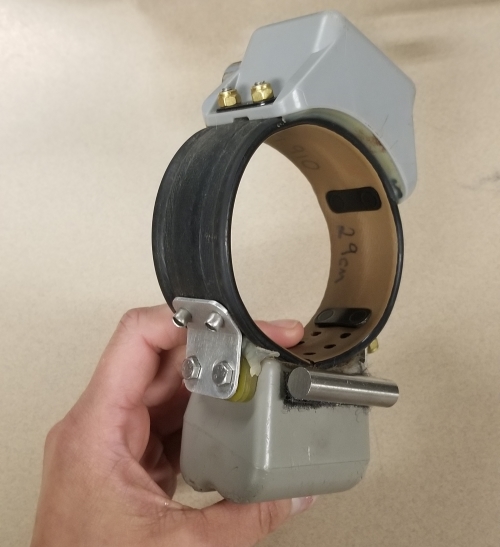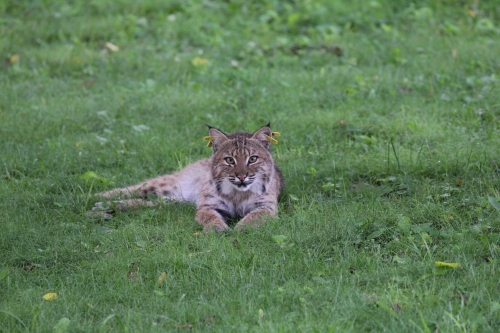Press Releases

07/25/2018
Residents Urged to Contact DEEP If They Find a GPS Collar from a Bobcat
The Connecticut Department of Energy and Environmental Protection (DEEP) is asking state residents to notify DEEP Wildlife Division officials if they find a GPS (global positioning system) neck collar in their yards or while in the outdoors. As part of a DEEP Bobcat Research Project, which was initiated in fall 2017, GPS collars were placed on 50 bobcats throughout the state. These collars have been collecting and transmitting important data about Connecticut's bobcat population. All of the collars are programmed to automatically detach from the animals on August 1, 2018. Once that happens, Wildlife Division staff will be working diligently to recover the collars, which will still be transmitting signals, from throughout the state. If anyone happens to find a collar in their yard or while walking in the woods, please contact the Wildlife Division at 860-424-3045 or deep.ctwildlife@ct.gov, and we will make arrangements to retrieve it from you. Finding the detached collars using telemetry equipment is a huge undertaking, and any assistance from the public is greatly appreciated.
DEEP is also asking residents to continue reporting sightings of bobcats, particularly of bobcats that have been marked with yellow ear tags by researchers (include the numbers on the tags if visible). Sightings can be reported on iNaturalist, the CT Fish and Wildlife Facebook page (www.Facebook.com/CTFishandWildlife), or at deep.ctwildlife@ct.gov. This study aims to investigate bobcat habitat use in different housing densities in Connecticut. Biologists want to determine how the state's bobcats meet their needs in both rural and suburban areas, as well as how successful bobcats are at reproduction and survival. More information about the Bobcat Project and how to report sightings can found on the DEEP website at www.ct.gov/deep/wildlife.

Credit: Melissa Ruszczyk/DEEP Wildlife Division
GPS collars like this one have been placed on 50 bobcats throughout Connecticut to collect important data. All of the collars are programmed to automatically detach from the bobcats on August 1, 2018, and DEEP is asking state residents to contact the agency if they find one of these collars.

Credit: Linda Tomas
The DEEP Wildlife Division is asking residents to report sightings of bobcats, particularly ones that have yellow ear tags. Sightings can be reported on iNaturalist, the CT Fish and Wildlife Facebook page (www.Facebook.com/CTFishandWildlife), or at deep.ctwildlife@ct.gov.
- Twitter: @CTDEEPNews
- Facebook: DEEP on Facebook

